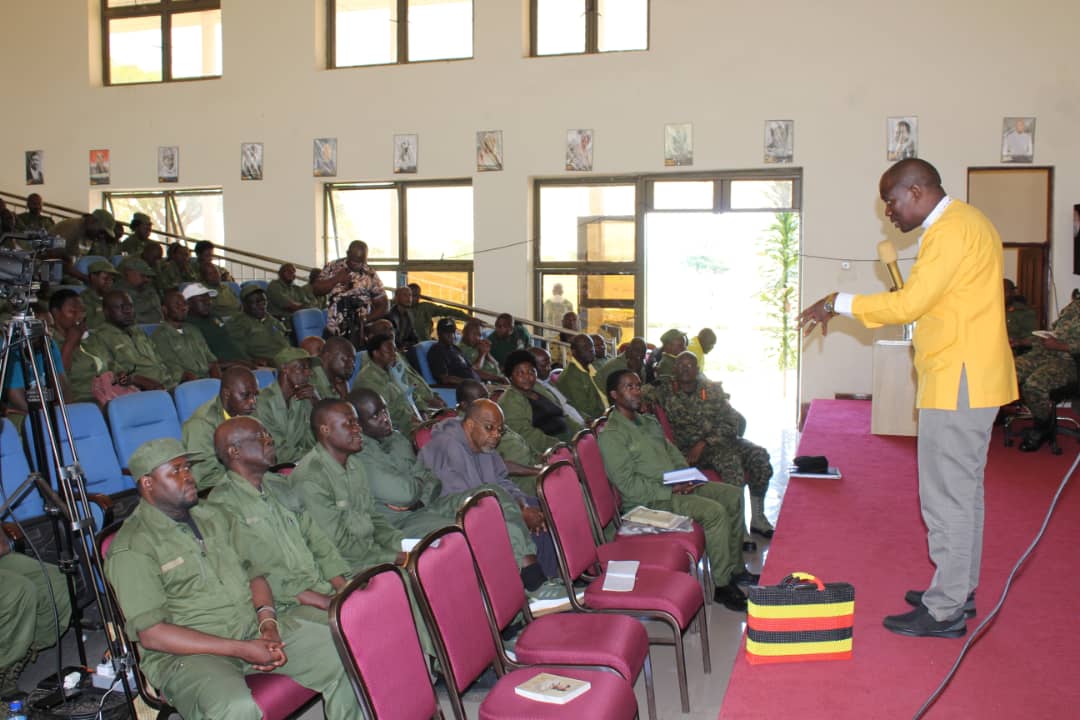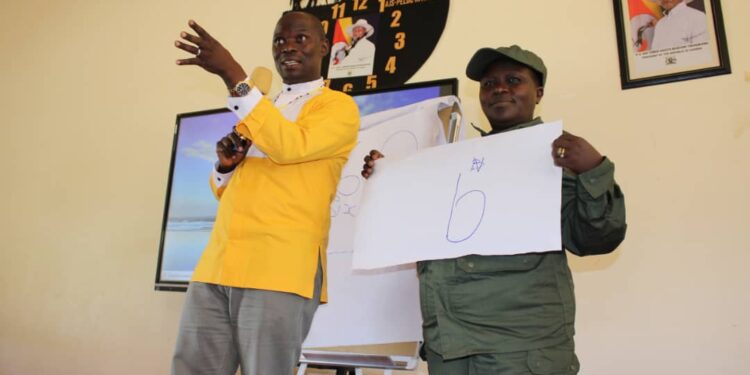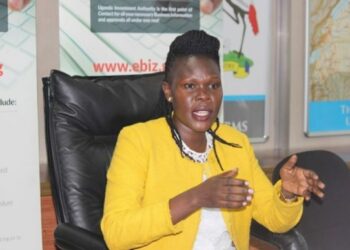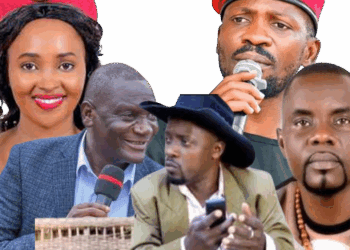The State Minister for Kampala City and Metropolitan Affairs, Hon. Kabuye Kyofatogabye, has called on local leaders to abandon bureaucratic complacency and actively engage with their communities to address pressing challenges.
He emphasized that ‘grassroots leadership’ is crucial for effective governance and the successful implementation of government programs aimed at poverty alleviation.
Hon. Kyofatogabye made these remarks on Friday at the conclusion of a week-long National Retreat for Deputy Resident District Commissioners (RDCs), Resident City Commissioners (RCCs), and National Resistance Movement (NRM) district chairpersons at the National Leadership Institute (NALI) in Kyankwanzi. The retreat focused on evaluating progress on the 2021–2026 NRM manifesto commitments and the 23 Presidential strategic directives and objectives.
Expressing concern over absenteeism among some RDCs and their deputies, the Minister criticized local leaders who remain ‘missing in action’, failing to engage with communities and properly sensitize citizens about government programs like Emyooga and the Parish Development Model (PDM).
“Being a leader means being with the people, understanding their needs, and solving problems from the ground up. We need leaders who don’t just sit behind desks but walk the streets, visit villages, listen, and educate people on government initiatives to stamp out poverty,” he stated.

“You knock on an RDC’s door, they tell you he is not around. The next day, he is still not around. But when you finally find him, he’s just sitting inside reading newspapers and making a few phone calls,” he wondered.
He urged these leaders to take the lead in countering misinformation and demystifying negative perceptions surrounding government programs—often fueled by opposition narratives. He emphasized the need for a “common outlook” among leaders to ensure coordinated and effective service delivery.
Willis Bashasha, the Director of Manifesto Implementation Unit also stressed the importance of transparency and accountability in governance. He noted that RDC offices bear the responsibility of evaluating and monitoring service delivery, while NRM district chairpersons serve as key accountability figures for the ruling party, particularly as Uganda approaches the next election cycle.
“As we seek another mandate, it is crucial that leaders understand how far we have come in fulfilling our social contract with Ugandans. This knowledge enables them to mobilize and effectively communicate our progress,” Bashasha stated.
As part of the retreat, participants received detailed briefings on government achievements in key sectors including health, education, agriculture, water, and energy. These insights will enhance their ability to articulate government successes and outline future development plans to the electorate.
Col. Okei Rukogota, the Director of NALI, highlighted the retreat’s role in strengthening ideological orientation among leaders. “We have given you a dosage of ideological orientation. As per the Constitution, all Ugandans have a patriotic duty—to ourselves and to the people we lead,” he remarked.
Hon. Kyofatogabye’s passionate call for proactive, engaged, and accountable leadership is expected to redefine district-level governance, ensuring that government programs truly serve the people—not from a distance, but through direct and continuous engagement.
Do you have a story in your community or an opinion to share with us: Email us at editorial@watchdoguganda.com














